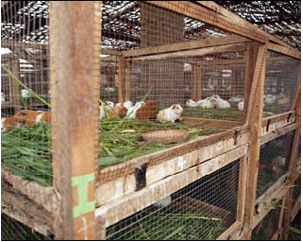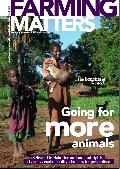Being the odd-one-out can be difficult, not least in agricultural production. This is why we were interested in hearing more about the state of HECOSAN, an ecologically managed farm found on the outskirts of Lima, in Peru, surrounded by conventional cotton farms.

Even if in small quantities, crops also include maize, peas and cowpeas. This integrated system, however, is surrounded by conventional cotton producers, all of whom rely on a never-ending quantity of pesticides.
Five years later
The different benefits of their integrated approach were presented by Luis Gomero in volume 21.3 of LEISA Magazine. Five years ago, there was already a clear advantage in economic terms when HECOSAN was compared to its conventional neighbours. At the same time, the different crops and species were already helping improve the quality of the soil, helping reduce the attack of pests and diseases, and even providing fruit for self consumption.
The basic principles are still the same, even if there have been changes in some of the components of the farm. Perhaps the biggest changes have been in the types of crops grown. Although rearing guinea pigs is still their main activity, Luis Gomero and his colleagues are now also growing strawberries for the local market, and herbs (like basil and thyme) for export. This means that more labour is required, but the results in terms of income are significant. “We have an even more diverse farm, and the income we get does not only come from the guinea pigs.” In addition, since 2009, HECOSAN has been certified organic, so its products can also be sold in the organic market which is held every week in Lima.
Dealing with difficulties
Being surrounded by conventional producers means having to take extra care, especially as guinea pigs are sensitive animals. Elephant grass is now also used as part of a live fence (while complementing the production of alfalfa), but special attention must be given to the irrigation water. The presence of animal diseases is always serious: this is one of the reasons why they decided to stop rearing hens and chickens, and why they opted for a different housing system for the guinea pigs themselves. Keeping up the quality of the soil is also a must, for which extra attention is now given to the in-house production of compost and vermiculture (composting through worms). It’s all hard work. But if the benefits of all these efforts were clear five years ago, they are much clearer now. (JCT)
The original article can be found on our website. Luis Gomero can be contacted at lgomero@raaa.org.
Photo: Teresa Gianella

